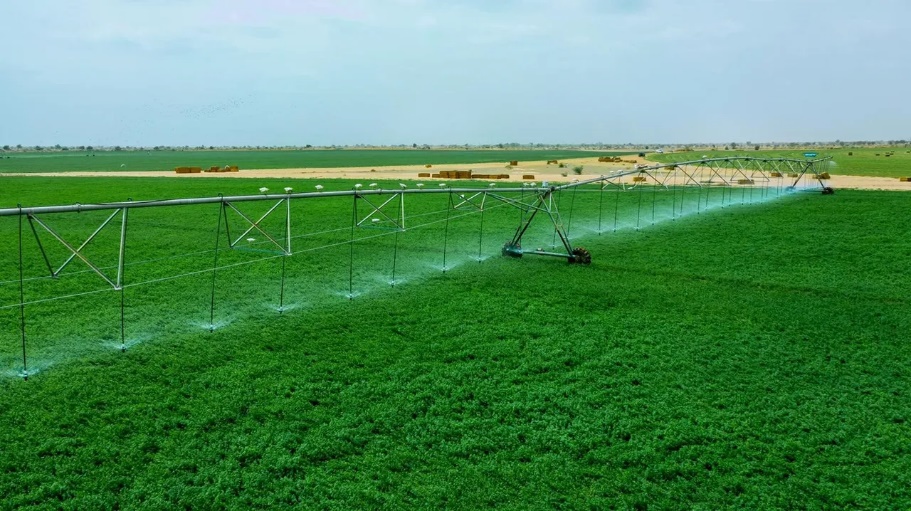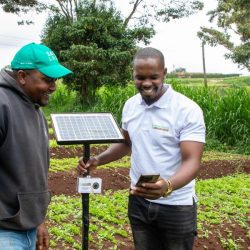Abuja, Nigeria: President Bola Ahmed Tinubu has urged African nations to embrace groundbreaking strategies to confront the continent’s escalating irrigation and water management crisis. His call to action came in a message delivered to the 6th African Regional Conference on Irrigation and Drainage, currently underway in Abuja, where experts, policymakers, and stakeholders have convened under the theme: ”Tackling Irrigation Development and Water Management Crisis in Africa.”
The President underscored that effective irrigation and drainage systems are the very lifeblood of sustainable agriculture, particularly across a continent where erratic rainfall and the looming threat of climate change cast a long shadow.
Across Africa, and acutely in Nigeria, the state of these crucial systems reflects a stark paradox: immense agricultural potential hampered by persistent barriers that stand resolutely in the path of food security and economic resilience.
Nigeria, a nation blessed with vast swathes of arable land, currently irrigates only a fraction of its cultivable area. The majority of its farmers remain tethered to increasingly unpredictable rain-fed agriculture, leaving them perilously vulnerable to the devastating impacts of droughts, floods, and shifting climate patterns – a precarious situation that poses a grave threat to food production, livelihoods, and the nation’s overall development.
It is against this backdrop that the Abuja conference has gathered leading minds from across the continent, tasked with dissecting these challenges and forging lasting solutions for sustainable water management and robust agricultural development.
Declaring the conference open, President Tinubu, represented by the Secretary to the Government of the Federation, identified a quartet of critical impediments hindering Africa from fully harnessing its irrigation potential: inadequate infrastructure, crippling financial constraints, the pervasive threat of climate change, and persistent governance issues.
“Africa is still facing significant challenges in harnessing its irrigation potential due to inadequate infrastructure, financial constraints, climate change, and governance issues,” the President stated. He pointed to Nigeria’s own considerable capacity, boasting over 3.1 million hectares of irrigable land across major river basins like the Niger and Benue, asserting, “We can boost agriculture and food security in Africa.”
President Tinubu further outlined his administration’s commitment under the “Renewed Hope Agenda,” which has declared a national emergency on food security, a core component of which involves scaling up vital irrigation infrastructure and promoting participatory water resource management.
Echoing this commitment, the Minister of Water Resources and Sanitation, Professor Joseph Utsev, highlighted ongoing efforts to bolster food security and prioritize climate change adaptation and mitigation strategies. He detailed several landmark initiatives being implemented by the Federal Government under the Transforming Irrigation Management in Nigeria (TRIMING) project.
“Some of the landmark gains recorded by the TRIMING project include the completed Dadin-Kowa and Bakolori irrigation schemes, as well as the drip and micro-irrigation projects,” Professor Utsev explained. He also noted the significant progress of the Middle Rima Valley irrigation project, currently at 90% completion, and ongoing irrigation projects in several other states.
A key focus, the Minister emphasized, is the “Establishment and strengthened Water Users Associations (WUAs) to promote inclusive and participatory irrigation management as a means of shifting the responsibility of operation and maintenance of irrigation systems to the water users,” alongside efforts to strengthen market linkages for farmers and establish farmers’ management centres for crucial technical assistance.
The stark reality of climate change’s impact on agriculture was brought into sharp focus by the Governor of Borno State, Babagana Zulum. He highlighted the increasingly unpredictable and shrinking farming seasons, leaving farmers deeply uncertain about optimal planting times.
“Across sub-Saharan Africa, agricultural systems remain heavily reliant on rainfall. Nearly 65% of our farmland is rain-fed. But rain no longer comes as it once did. What was once predictable has become uncertain,” Governor Zulum stated, citing a World Bank report indicating a significant 20-30% shift in rainfall patterns across the Sahel in the last decade. “Our farmers are often left unsure of when to plant or harvest. And the consequences are there. The Food and Agricultural Organization warns that if this pattern continues unchecked, we will see a 50% reduction in crop yields across the continent by the year 2030.”
The Head of the Civil Service of the Federation, Didi Wilson Jack, and the President of the International Commission on Irrigation and Drainage (ICID), Dr Marco Arcieri, both urged the conference to prioritize finding sustainable solutions to the escalating challenges posed by climate change.
Nigeria, a committed member of ICID since 1970, secured the prestigious hosting rights for this crucial regional conference during the 24th ICID Congress held in Australia in October 2023. The Nigerian National Committee on Irrigation and Drainage (NINCID) is spearheading the organization of the event, with vital support from the Federal Ministry of Water Resources and Sanitation. The discussions and strategies emerging from this Abuja gathering hold significant weight for the future of African agriculture and its ability to weather the growing storm of climate change.




